My book | Extreme Economies
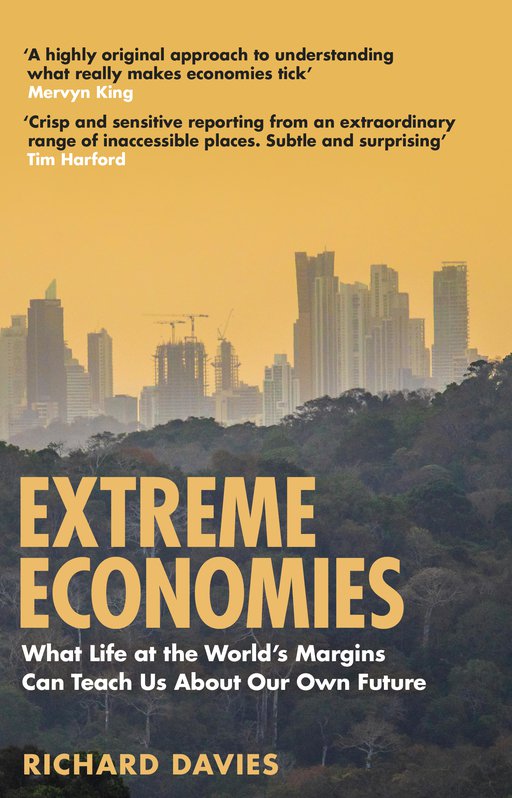
My book Extreme Economies won the Lonely Planet Debut Travel Writing Prize. 9 countries, over 500 interviews and 100,000 miles of travel. Out now in the UK, US, Japan, China, Korea and Taiwan.

My book Extreme Economies won the Lonely Planet Debut Travel Writing Prize. 9 countries, over 500 interviews and 100,000 miles of travel. Out now in the UK, US, Japan, China, Korea and Taiwan.

A new course for people who have never studied economics, but who have big economic questions they would like to answer. Designed and written with U Chicago Faculty, this is Economics for Everyone.
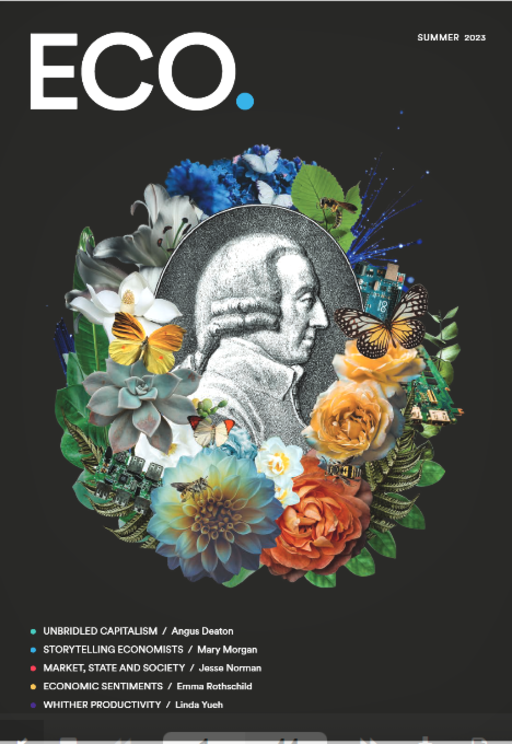
Our third magazine celebrates Adam Smith. Born 300 years ago this year, he revolutionised the way we think about society. From collusion to efficiency to alienation, his ideas are still sharp today.
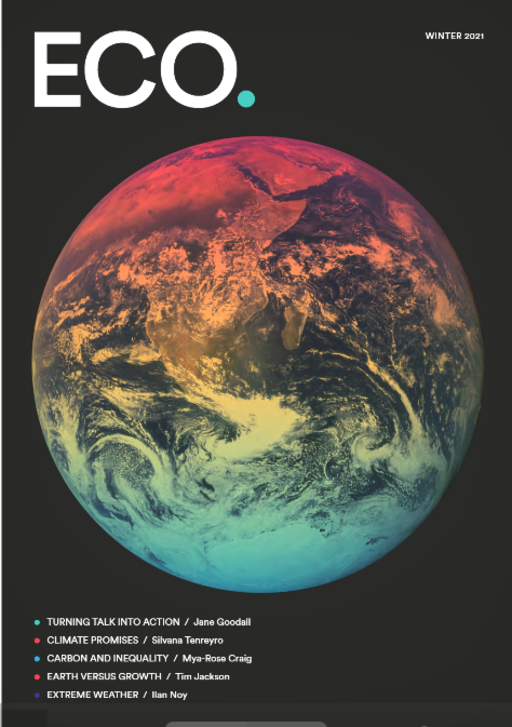
We published the second issue of our magazine to coincide with COP-26. It is packed with facts, and includes my interview with Jane Goodall.
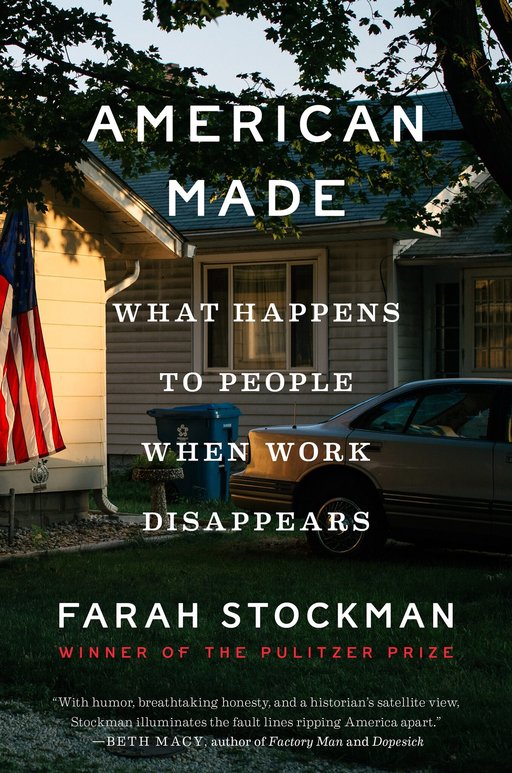
The result of three years of interviews and on-the-ground research American Made shows how journalism is a vital tool in uncovering how economies truly function. A must-read.
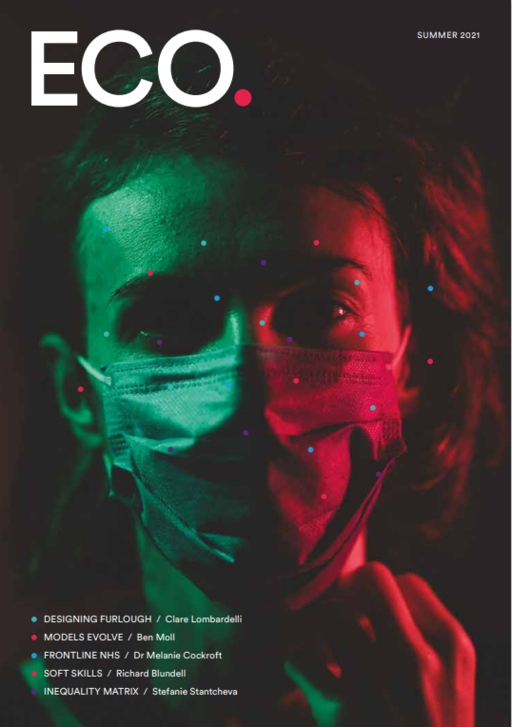
We published a magazine! ECO features some of the top economists from the world of policy and academia, including a rare interview with Clare Lombardelli - chief economist at HM Treasury.
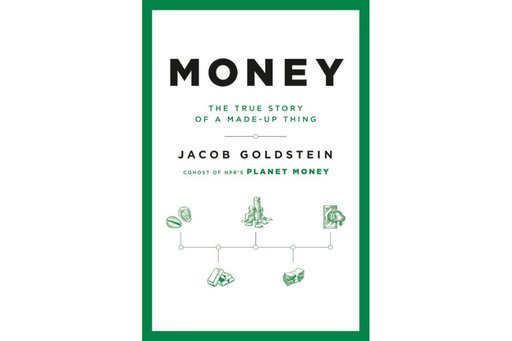
A review of the book "Money: the True Story of a Made Up Thing" by Jacob Goldstein. It is a great read: fast-paced and packed with stories and history - thoroughly recommended.

Some shocks we don't see coming. Others we do. Looming on the horizon is a new stress - the shriking society. I saw these challenges--economic, social and cultural--first hand in Japan.
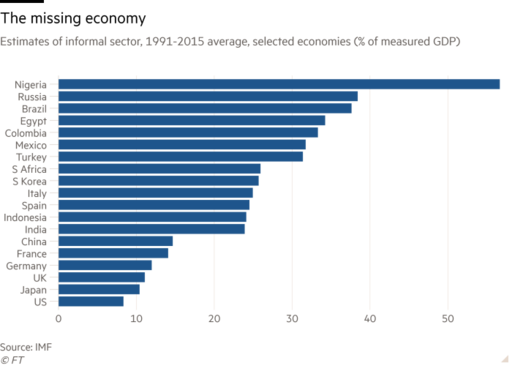
We think of the hidden economy as “underground”, “shadow” or “grey”. In reality it is vibrant, colourful, and well organised. It is also huge, 32% of GDP is the best guess. We need to understand it.

Inequality, rioting and a battle of economic ideas in Chile. The remarkable story of how a group of PhD students came to run a nation. To understand Santiago first understand the Chicago Boys.

120 years ago Glasgow was the best city in Europe. Then it fell. How did a hub of innovation and industry sink so low? The answer: Alfred Marshall and some terrible policy choices.

A long read about the Lousiana prison system, based on my book. The remarkable state lifts the lid on the origins of money and barter and is the home of a remarkable new digital currency innovation.
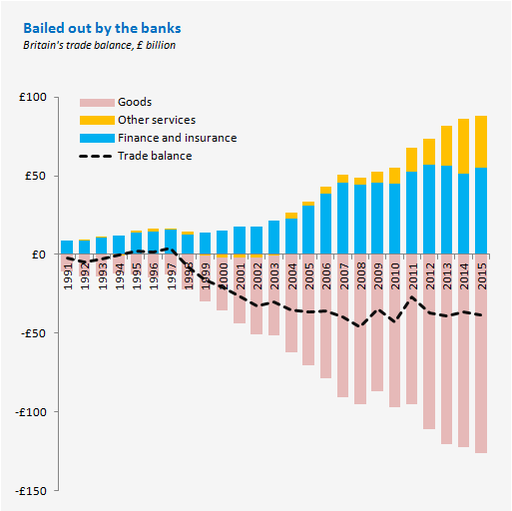
For the City of London an uncomfortable anniversary is fast approaching. December 1, 2008 was the nadir of British finance, the day that Alistair Darling put £15 billion of public money into Royal ...

On the face of it these seem like tough times for financial scammers. The crash of 2008 burned investors, exposed fraudsters and has forced regulators to toughen up. Yet dodgy “pyramid” investment ...
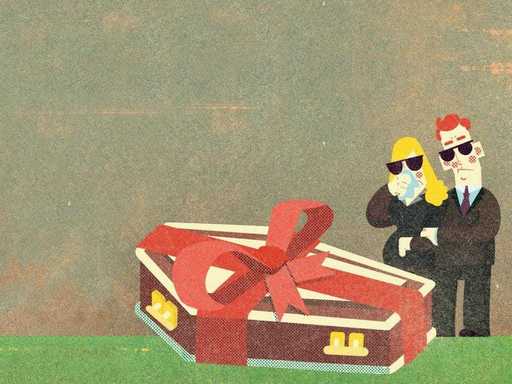
A rising number of families has huge walls of cash to leave to their lucky offspring. Many parents worry that too much too young can breed laziness, and a new industry helping parents guide their o...
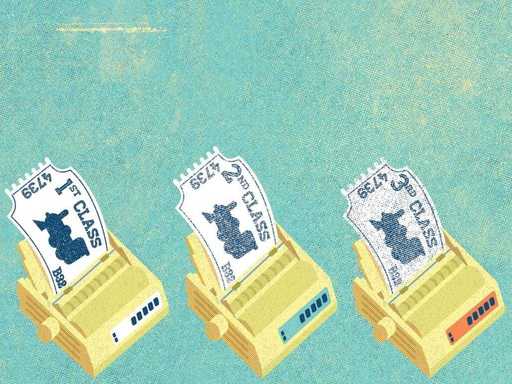
There is much about computing to make the blood boil – the badly timed crashes and the endless software updates are frustrating. Yet most annoying of all is the fact that some products seem needles...
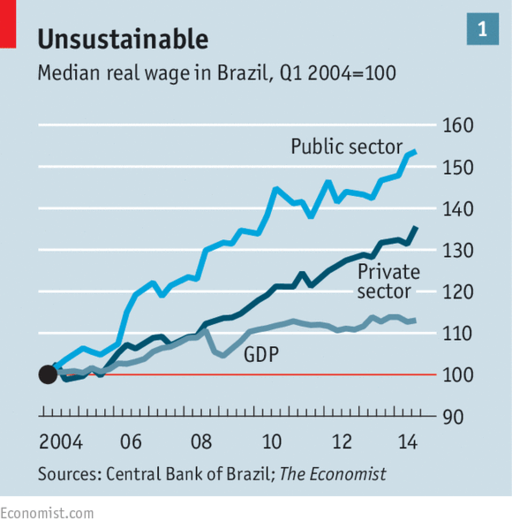
IT IS easy for a visitor to Rio to feel that nothing is amiss in Brazil. The middle classes certainly know how to live: with Copacabana and Ipanema just minutes from the main business districts a g...
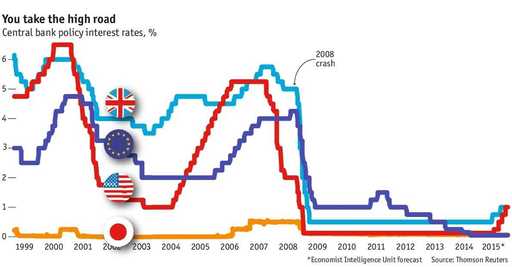
There are two schools of thought when it comes to rich-world interest rates in 2015. Some reckon that, after such a long period stuck to the floor, rates must rise as growth returns and unemploymen...
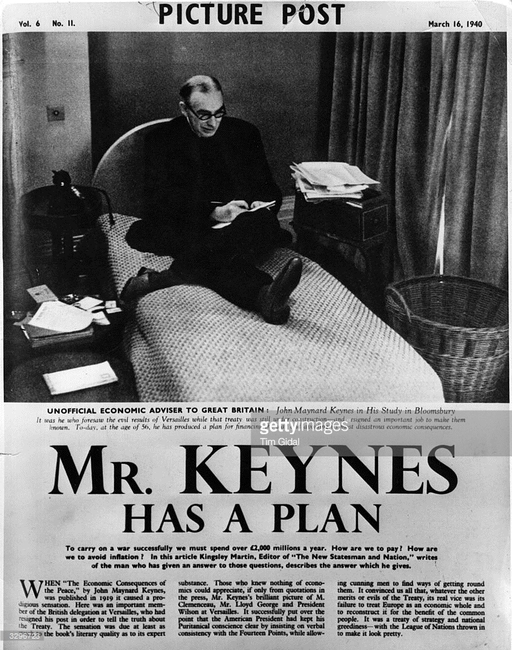
FOR economists 2008 was a nightmare. The people who teach and research the discipline mocked by Thomas Carlyle, a 19th-century polemicist, as “the dismal science”, not only failed to spot the preci...

NEW competitors always ruffle a few feathers. The unique thing about Uber, a new taxi-market player, is that it seems to have annoyed some of its customers as much as the incumbent cabbies it threa...

The story of Poyais, the mythical country at the centre of the world's biggest swindle. From Ponzi to Madoff history has many famous financial criminals. None come close to Gregor MacGregor.

WILLIAM PETTY was an innovation machine. He designed an early form of catamaran, conceived of a mechanical grain planter, proposed attaching engines to boats and patented a “double-writing” instrum...
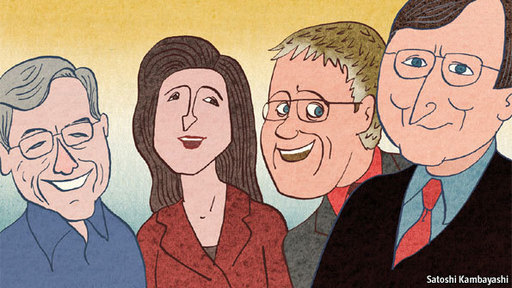
ON THE face of it, economics has had a dreadful decade: it offered no prediction of the subprime or euro crises, and only bitter arguments over how to solve them. But alongside these failures, a sm...
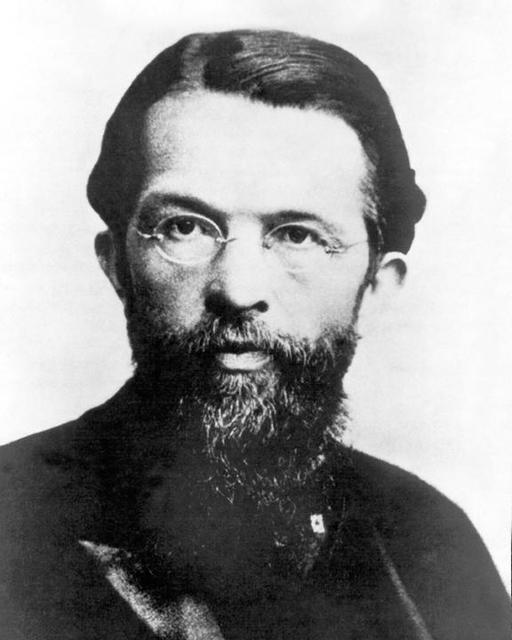
MONEY is perhaps the most basic building-block in economics. It helps states collect taxes to fund public goods. It allows producers to specialise and reap gains from trade. It is clear what it doe...
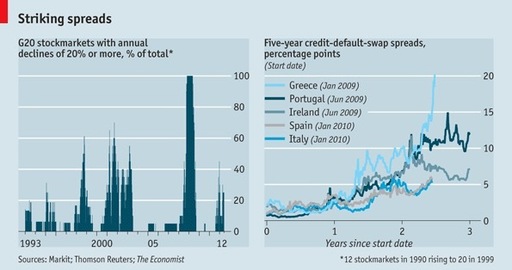
Predicting financial contagionCAN Greece leave the euro quietly? Its size would suggest so: the Greek economy is just 2% of the euro area's GDP. But so far the Greek crisis has had plenty of noisy ...
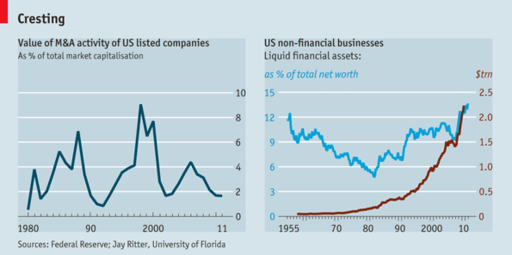
IN 1900 America had around 500 carmakers; by 1908 it had 200. In 1960 Britain had 16 banks; ten years later it had just six. In both cases, this rapid consolidation came about because of a flurry o...
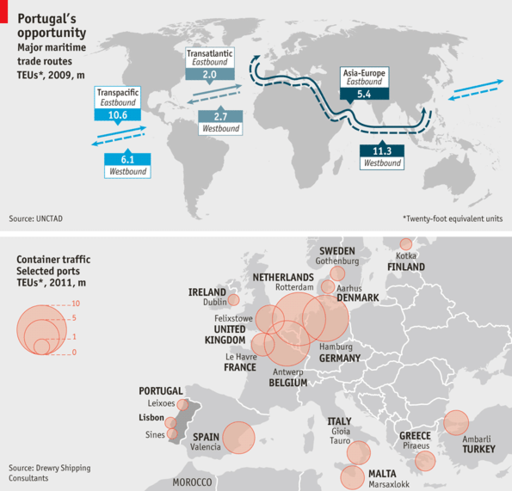
LISBON'S harbour mixes pleasure with business. Bars and restaurants sit alongside industrial machinery and colossal container ships. The combination works: shiny cranes gleam in the sunset as touri...